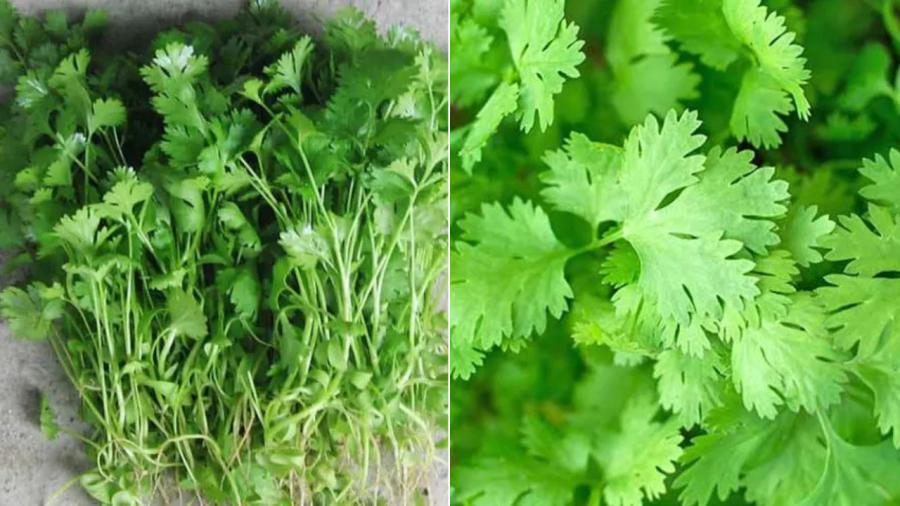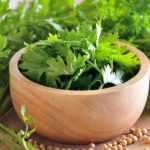The Health Benefits of Coriander
Coriander is not only a spice but also considered a medicinal herb with healing properties. It contains essential oils that can be used from the leaves, roots, and seeds. The dried ripe fruit of the coriander plant is the main part used as a medicine.
Coriander is rich in omega-3 and omega-6 fatty acids, which have anti-inflammatory properties. Additionally, it supports brain development in children.
Coriander provides a generous amount of beta-carotene and other antioxidants that help prevent eye-related diseases and slow down aging eyes.

The abundant amount of vitamin A in this herb also helps boost the immune system and fight off infections in the body.
A study with diabetic patients showed significant reduction and stabilization of blood sugar levels after using coriander for a few months.
Coriander is also a good source of calcium, which promotes healthy bones and teeth.
This herb can be used as a natural remedy to soothe nerves and improve sleep quality.
Individuals Who Should Avoid Coriander
While coriander is beneficial to health, individuals in the following groups should limit their consumption of this herb.
– Individuals with liver disease
Coriander contains volatile oils and potent antioxidants that can help with liver issues. However, consuming large amounts of coriander can increase bile secretion and potentially harm the liver. Individuals with liver disease should limit their consumption to avoid additional burden on the liver.
– Individuals with gastrointestinal problems
Coriander is an herbal remedy for digestion issues. However, excessive use of coriander can cause digestive disorders. A medical report showed that using 20ml of coriander extract continuously for a week can lead to bloating, stomach pain, and nausea.
– Pregnant women
Pregnant women should not consume excessive amounts of coriander during pregnancy to avoid potential harm to the fetus. Some components in coriander are known to affect the mother’s body and pose risks to the unborn baby.
– Individuals with allergies
The essential oils in coriander leaves and seeds can cause skin irritation. Therefore, individuals with allergies to this herb should avoid its use. Those who frequently come in contact with coriander leaves and seeds should wear gloves to prevent skin irritation.
– Individuals with respiratory problems
Individuals with respiratory issues should limit their consumption of coriander. This herb can cause throat dryness and worsen respiratory problems.
– Individuals with low blood pressure
Consuming large amounts of coriander can cause a sudden drop in blood pressure, leading to dizziness and even fainting.
Of course, if coriander is used in small amounts in dishes, individuals in the above groups (except those with allergies) can still consume it normally.
Tips to Eliminate Up to 80% of Heavy Metals from Your Body in 48 Days
Heavy metals are often associated with health issues and diseases such as heart conditions, cancer, emotional disorders, cognitive decline, and respiratory problems. These harmful substances can be found in various everyday items, making it crucial to be aware of their potential risks. By understanding the impact of heavy metals on our health, we can take steps to minimize exposure and protect ourselves and our loved ones.
































